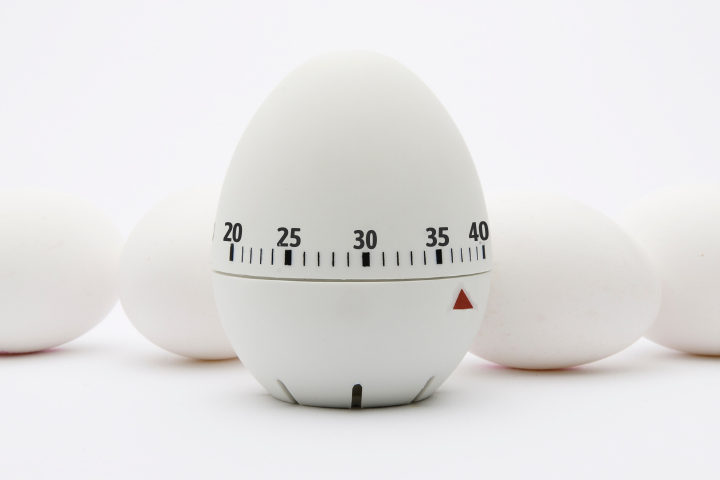By SUSAN DONALDSON JAMES , ABC News, Sept. 10, 2012
Rebecca, an Orthodox Jew from California, was two weeks away from her marriage to the son of a respected rabbi when medication she was taking for migraines triggered a debilitating stroke.
She fell to the floor of the emergency room where she was working as a manager and broke her neck, suffering both spinal cord and brain injuries. When her fiance saw the extent of her disability, he called off the wedding.
“We did everything the Orthodox way,” she said of their three-month engagement after being matched by family members. “I was in the hospital on my wedding day and they got out the wheelchair, and he was so frightened he backed off.”
Now 38 and walking again, Rebecca is single, but her Orthodox faith implores her to find a husband and build a family. So she sought spiritual guidance from three or four rabbis and has decided — with their blessing — to have her eggs frozen for the future, when she hopes she will marry and start a family.
Doctors in the United States who are familiar with “halacha” — or Jewish religious law — say they are seeing more Orthodox patients who have been sent by their rabbis to freeze their eggs before their fertility wanes.
Orthodox Jews include a number of different sects worldwide, including the large Hasidic communities in New York City, which all place an importance on raising families.
“I couldn’t think of a life without children because of our religion,” said Rebecca, who did not want to share her name for privacy reasons. “That’s the biggest mitzvah [commandment]. To bear kids and to bring them up the right way and to teach them the Torah is a woman’s obligation.”
Reproductive technology has perfected freezing techniques so that pregnancy rates are about the same as using fresh eggs when in vitro fertilization methods are used.
Rebecca is prepared to spend $7,000 to $10,000 per cycle to freeze her eggs with fertility specialists who can provide religious supervision.
“Most rabbis are strongly recommending this, and most should,” said Dr. Sherman Silber, director of the Infertility Center of St. Louis, whose practice caters to Orthodox Jews. “‘Be fruitful and multiply’ is considered the first commandment.”
The procedure helps make these single women more marriageable in the eyes of their communities, according to Silber.
“In truth, however, most orthodox women marry much earlier than this, often at age 20,” he said. “So it is an uncommon event, but an important one for them.”
About 5 percent of Silber’s patients are Orthodox and his practice is supervised by top halachic authorities in Judaism from Jerusalem.
He recommends egg freezing “for all women who do not anticipate having a baby soon,” he said. “Aging of the eggs is the critical and most important reason for the current infertility epidemic worldwide. And I would suggest well before age 38 to do that.”
“We do everything we can to follow Orthodox halacha in all of our IVF practice,” said Silber. “The patient can get her shots on Friday night before shabbos, and she can get her shots on Saturday night after shabbos. This is never a scheduling or dosage problem.”
Rabbis also give special approval in rare cases when egg pick-up must be over the Sabbath, according to Silber, “as life trumps all other mitzvahs,” including getting approval for a non-Jewish doctor.
In Israel the procedure is covered by the government. Some rabbis recommend every single woman over age 32 freeze her eggs as an insurance policy against infertility.
More women delay pregnancy for careers, but by their mid-30s their fertility dramatically drops and miscarriage rates rise. Harvesting a woman’s eggs literally freezes them in time.
The first “frozen egg” baby was born in 1986, but success rates were so low that it was considered experimental. Unlike sperm, which had been successfully frozen for years, unfertilized eggs contain a lot of water and slow freezing causes ice crystals to form, destroying cell structure. But a specialized fast-freezing technique called vitrification changed all that . . .
In accordance with halacha, eggs must be placed in new Petri dishes, even if they have been sterilized.
Rebecca is now in counseling with Rabbi Gideon Weitzman of Jerusalem, who is director of the Puah Institute, which for 20 years has been a “central authority” on infertility procedures performed in accordance with Jewish law.
“There is a very, very huge interface through the millennia between Judaism and medicine and technology,” he said. “We’ve learned to go hand in hand with science.”
Weitzman said freezing the eggs of single women is a real “boon” for Orthodox women who are taught at a young age that marriage and children are important.
“We get calls on this question every single week, if not every single day,” he said.
Most of the time, women who freeze their eggs do not end up using them after they have found a husband and conceive the usual way.
Jewish law is “permissive” on destruction of unused eggs or embryos.
“Everybody agrees life in a Petri dish isn’t life,” said Weitzman.
Rebecca, who is of Moroccan Jewish descent, did not grow up in a religious family, but became modern orthodox when she was 27. She observes Shabbat (the Sabbath), prays each morning and dresses modestly in skirts below the knee — except at the hospital, where she wore scrubs to work.
After his initial hesitation, her fiance later asked her to marry once again, but she refused.
“That wasn’t an option for me after the way he behaved in my recovery,” she said. “I wanted someone to be there for me the Orthodox way — to be there for you regardless, someone who is more nurturing.”
She wears a neck collar and has multiple therapies for her brain injury, which makes her processing slower.
“As an OR manager and director, I was, all the time, very active,” she said. “But now, it’s sometimes hard to read a book. I get fatigued easily.”
She has been told she can never do nursing again. But with a helping husband, she said being a mother one day is possible.
“I know that I have a long road to recovery and my self-esteem went down,” she said of her broken engagement.
Still, she eventually wants to go back to dating and find a husband.
“I feel hopeful,” she said. “I am a very positive person. Thank God, I never got depressed and my religion has helped me a lot.”





